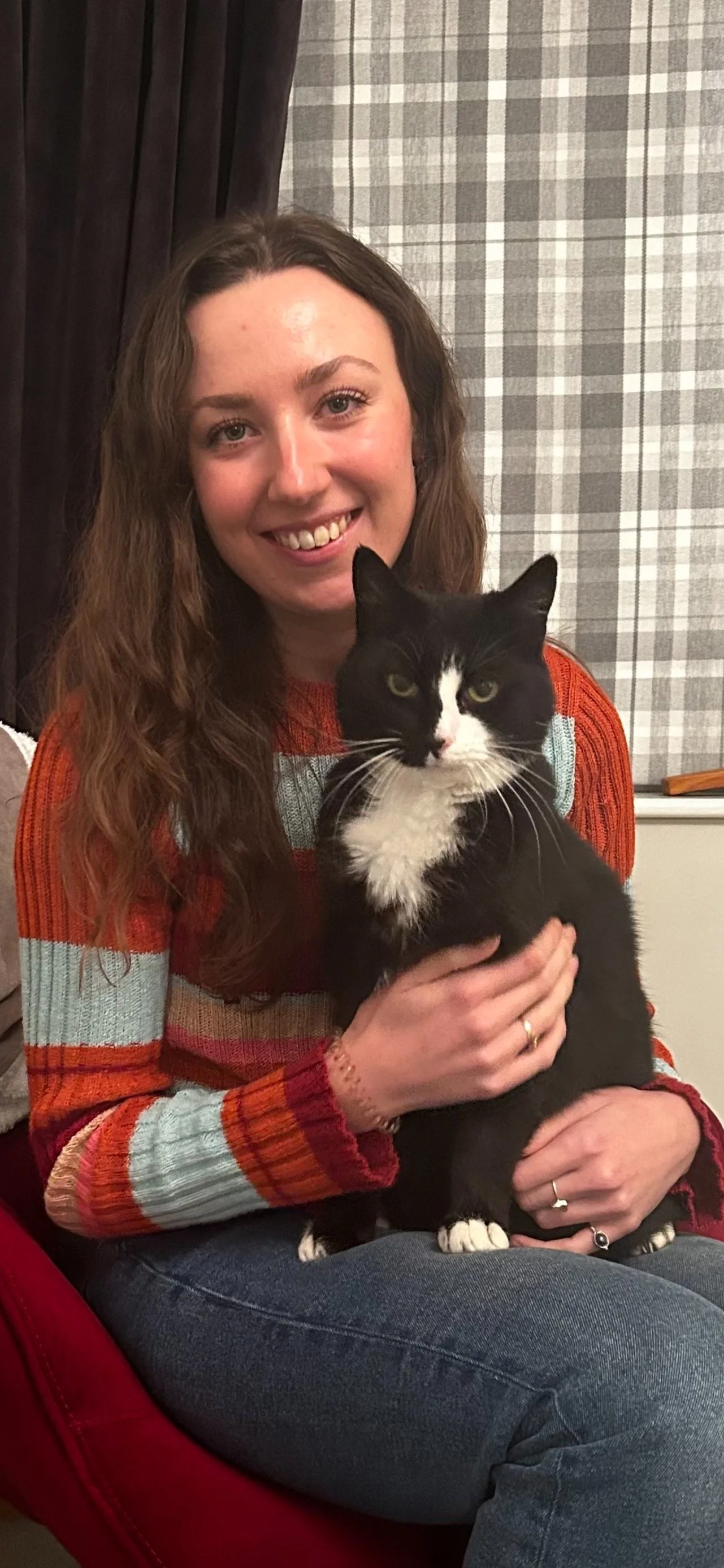About me
Having owned and loved animals from a young age, I always knew I’d end up working with animals. I studied Animal Science at university, which gave me a particular interest in animal behaviour. I then began working in a veterinary clinic which showed me the problems owners can face and the difference positive methods can make to the life of the pet and their owner. This led to me completing a MSc in Clinical Animal Behaviour at the University of Lincoln, graduating with Distinction.
I am a Provisional Member of the APBC, and I am currently working towards full membership.
“Provisional CAB Members have demonstrated that they have the appropriate level of Knowledge and Understanding for the professional role of Clinical Animal Behaviourist (CAB). They are now gaining the practical experience necessary to be assessed as a CAB and therefore become a Full Member of the APBC. The APBC supports its Provisional Members undertaking behaviour consultations.”
How I work
The aim behind every behavioural consultation is to understand the behaviours your pet is showing, and determine the emotional origin behind these behaviours.
The next step is to start to implement techniques to change these emotions, therefore altering the behaviours your pet is choosing to display.
These techniques are designed to be small and manageable in your daily life, by setting your pet up for success and rewarding them when they show behaviours you like.
The nature of changing the emotions your pet is experiencing can be a long process as we help them see the world in a different way, but these techniques are a more ethical, effective strategy for long term success than trying to find a quick fix.
Pain should always be considered as possible causes for behavioural problems, even if your pet is not showing any other symptoms. For this reason, I work solely on vet referral and will keep in close contact with your vet throughout the process.
FAQs
-
I cover many areas in Greater Manchester such as Altrincham, Hale, Sale, Urmston, Didsbury, Cheadle, Knutsford, Lymm, and Wilmslow.
This list is not exhaustive so please get in contact if you would like an in-person consultation!
-
Dog trainers focus on teaching specific commands and obedience, such as recall, stay or sit. Although these may be useful in treatment plans, Clinical Animal Behaviourists aim to resolve behavioural problems of an emotional origin (such as aggressive behaviour or separation anxiety).
Always make sure the professional you choose uses kind, effective methods of positive reinforcement, and has appropriate qualifications to be working in that field.
-
As a provisional APBC member, some companies will cover behavioural consultations, depending on your policy. Please get in touch with your insurance provider to find out if you are covered. Payment is required at time of booking, and costs can be claimed back to you once the consultation has taken place.
-
Working on vet referral means I obtain your pet’s medical history from their vet, and stay in close contact with your vet throughout the process.
I work on vet referral due to the close link between pain and behaviour. Pain and discomfort can directly affect or be the cause of problem behaviour. By accessing their medical history, I can look to find any potential physiological causes of the behaviour and contact your vet if this is something I think needs to be investigated further.
